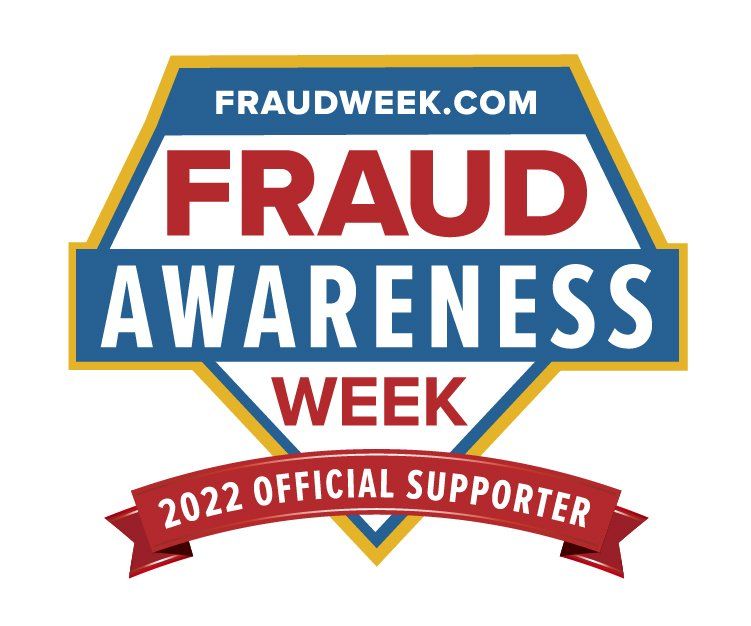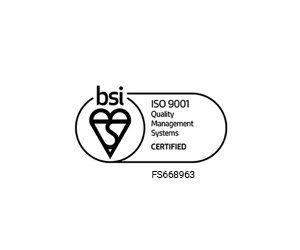International Fraud Awareness Week (13-19 Nov)
October 3, 2022
SAFE are proud to be official supporters of International Fraud Awareness Week (IFAW) 2022. This years event takes place from 13-19 November but you don't need to wait until #fraudweek to be a fraud fighter.
We've got lots of great tips and advice here and we'll add more as we approach #fraudweek so make sure you keep checking back here.
Be sure to like and follow our Twitter
and LinkedIn
accounts to stay up-to-date with the very latest fraud prevention advice.
Fraud and cyber crime account for 44% of all estimated crime in England and Wales, affecting more people, more often, than any other crime. The social and economic cost to individuals is estimated to be £4.7 billion a year.
The more aware we all are about fraud, the less likely we are to fall victim to it.
Here are some fraud fighting tips to help you:
- Get scam alerts - Sign up for WHICH? scam alerts to get alerted to the latest scams and receive practical advice to keep you one step ahead of fraudsters. They also have details of support services for victims of fraud.
- Improve your cyber security with 6 simple actions.
- Protect you devices and personal details - If you're an NHS employee, you can get discounted anti-virus and internet security for your home tech!
- How scam-savvy are you? Put your ability to spot a scam to the test with this quick quiz from Take Five to Stop Fraud.
- Need to brush up on your skills? Visit the Scam Academy.
- Report all genuine suspicions of fraud, bribery or corruption against the NHS to your Local Counter Fraud Specialist or to Crimestoppers on free-phone 0800 028 40 60 or online at www.cfa.nhs.uk/reportfraud.
- Report fraud and cyber crime against an individual or business to Action Fraud online or by calling 0300 123 2040.
If you are a business owner, charity, school or public sector organisation and you would like more information about how SAFE can help your organisation identify and prevent fraud please get in touch for an informal, no obligation chat.
Share this news story...

Section 199 of the Economic Crime and Corporate Transparency Act 2023 (ECCTA) introduced a new corporate offence that significantly raises the bar on fraud risk management. Large organisations can now be criminally liable if an employee, agent, or other associated person commits fraud for the organisation’s benefit—and the organisation did not have reasonable fraud prevention procedures in place. This is a strict liability offence. Prosecutors do not need to prove senior management knowledge or intent. If fraud occurs and the organisation cannot demonstrate an adequate prevention framework, liability follows. The only defence: reasonable procedures The sole statutory defence is that the organisation had reasonable procedures in place to prevent fraud, or that it was reasonable not to have such procedures. In practice, regulators have made clear that “reasonable” will be interpreted robustly. Organisations should be acting now to: Conduct a documented fraud risk assessment covering business models, revenue streams, incentive structures, third-party exposure, and jurisdictional risk. Design proportionate prevention controls aligned to identified risks, including financial controls, approval thresholds, segregation of duties, and oversight of agents and intermediaries. Set the tone from the top , with clear board ownership, senior accountability, and demonstrable commitment to fraud prevention. Implement targeted training and communications so employees and associated persons understand fraud risks, red flags, and reporting routes. Maintain monitoring, reporting, and review mechanisms , including whistleblowing channels, audits, and periodic reassessment as the business evolves. Evidence everything . Policies without implementation, or controls without records, will not support a defence.

Thank you to everyone who attended one of our fraud prevention webinars in 2025. For those who missed them, you can now watch all the recordings at your convenience on the SAFE YouTube channel. Whether you want to find out more about the drivers of fraud, or explore strategies for preventing emerging threats such as dual employment and imposter fraud, we've got a webinar for you. All the links you need are below, and we've included links to additional resources available elsewhere on the SAFE website.

SAFE – Security and Fraud Experts and Dorset HealthCare University NHS Foundation Trust are proud to be part of Project WISE (Workforce Integrity and System Efficiency), a proactive initiative using data and advanced analytics to strengthen fraud detection across the NHS. The NHSCFA estimates that £1.346 billion of NHS funding is vulnerable to loss through fraud, bribery and corruption in England. With fraud posing a significant risk to NHS resources each year, we’ve joined forces with the NHS Counter Fraud Authority and four other NHS organisations across the South East and South West to pilot this first-of-its-kind initiative. The pilot is helping to identify emerging fraud risks and patterns, turning complex data into actionable intelligence that supports local and regional counter fraud teams.



